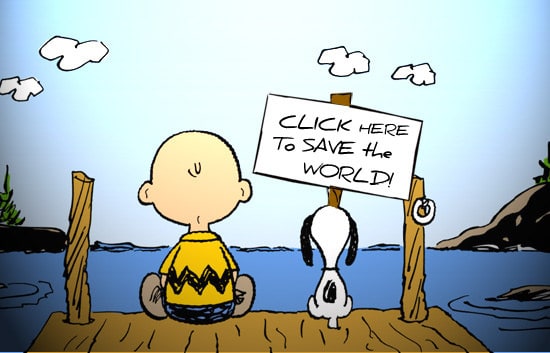Perhaps this reveals something about my inner nerdy self, but I only have a few apps on my phone: Instagram, IMDB, BaseballStL, OED, Quizlet, a Shakespeare quotation game, and a Word-of-the-Day App. Well, recently the word of the day was a word I swore was made up: “Slacktivism”
Slacktivism: actions performed via the internet in support of a political or social cause but regarded as requiring little time or involvement, e.g., signing an online petition or joining a campaign group on a social media website.
Seeing this word made me wonder — Am I truly staying informed? Am I engaging the issues deeply? Am I actually actively engaging the topics or am I simply Liking, sharing, and posting?
In the last few months, it seems like my attention has jumped from news story to news story: Paris, Mali, Beirut, Baghdad, Syria, Pope Francis’s trip to Mexico, the politics of the presidential campaign, Mizzou, the anniversary of Ferguson, even the budget crisis in my home state of Louisiana. At the same time, I’ve talked more about the logo change here at St. Louis University than almost any of these.
My one true activist moment occurred recently. A friend of mine posted a picture of himself holding a striking, social-political sign. The topic is one I know this person feels deeply about, an issue which has personally affected him. I sat there for a moment with my cursor over the “Like” icon wondering: what does it say to him and to the world if I “Like” this picture? After a brief pause, I did two things: I clicked “Like” and then I sent him a text letting him know that I admire him and what he is doing.
Was this different from slacktivism? I think it was. Not only was I making a statement which I believe, but I engaged the conversation with the one thing I can bring: care. It’s a small thing to send a text, but at the moment it’s all I can do to show the person that I genuinely care and support him. A small gesture, but one which led me to talk to others about my friend’s fight and experiences. I may not be able to join him on the “front lines” of the issue at the moment, but I am able to support him in some small way. By being with him—even from afar–and by carrying the issue into conversation moves slacktivism to solidarity; it moves me towards a realization that we are one human family, brothers and sisters, dedicated to peace and justice.
I love the solidarity that people can show on social media. I love the fact that there is an outlet where I can Like a comment supporting those who are suffering. I love the fact that I can even change my profile picture on Facebook to a picture of support, or even the colors of a flag. At the same time, solidarity is deeper than that.
If I am truly to be in solidarity with these people who are suffering, if I truly want to show my support, if I truly want to be informed, then I should feel courageous enough to talk about it. I have done the first step by cutting-and-pasting, Liking, sharing, and re-posting.
Now it’s time for me to do the second step: Can I engage the discussion? Can I engage the people actively fighting for a cause they or I believe? At the very least, can I talk about it?
Like an image to show your support. Post an article to get people thinking. Share to show your support for those who suffer. Publicly support those who care and support those who suffer. And then, let’s go a step further than just slacktivism.
Let’s talk about the people who are suffering. Let’s talk about the reasons and motivations that have built systems and dispositions where hate and suffering exist. Let’s talk, even if we don’t agree. Facebook and Instagram may not be the best forums to dive deeply into these things, but it might just be a start. So how about we sit down and talk?
*******
Cover Image Slacktivism Charlie Brown, via Flickr User Elijah van der Giessen, courtesy Flickr Creative Commons, available here.


